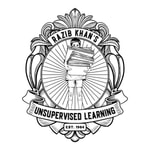Crossing Channels – Details, episodes & analysis
Podcast details
Technical and general information from the podcast's RSS feed.

Crossing Channels
Bennett Institute for Public Policy & Institute for Advanced Study in Toulouse
Frequency: 1 episode/35d. Total Eps: 40

Monthly podcast series produced by the Bennett Institute for Public Policy (Cambridge) and Institute for Advanced Study in Toulouse (IAST) to give interdisciplinary answers to today's challenging questions. Hosted by Rory Cellan-Jones with guest experts from both research centres. Subscribe to the Crossing Channels podcast feed https://feeds.buzzsprout.com/1841488.rss & download each episode at the start of the month.
Recent rankings
Latest chart positions across Apple Podcasts and Spotify rankings.
Apple Podcasts
🇬🇧 Great Britain - government
26/07/2025#87🇬🇧 Great Britain - government
25/07/2025#71🇬🇧 Great Britain - government
24/07/2025#45🇬🇧 Great Britain - government
20/07/2025#71🇬🇧 Great Britain - government
19/07/2025#63🇬🇧 Great Britain - government
18/07/2025#79🇬🇧 Great Britain - government
17/07/2025#57🇫🇷 France - government
03/07/2025#92🇫🇷 France - government
02/07/2025#85🇫🇷 France - government
01/07/2025#76
Spotify
No recent rankings available
Shared links between episodes and podcasts
Links found in episode descriptions and other podcasts that share them.
See all- https://www.iast.fr/
58 shares
- https://kse.ua/
4 shares
- https://twitter.com/BennettInst
23 shares
- https://twitter.com/IASToulouse
21 shares
- https://twitter.com/ruskin147
14 shares
RSS feed quality and score
Technical evaluation of the podcast's RSS feed quality and structure.
See allScore global : 78%
Publication history
Monthly episode publishing history over the past years.
Should there be a compulsory retirement age for society's leaders?
Season 3 · Episode 10
dimanche 30 juin 2024 • Duration 39:28
Our experts discuss the tradeoff between experience, expertise, skill and judgement as society’s leaders age. They draw on evolutionary and current examples to evaluate the case for implementing a compulsory retirement age for leaders. Finally, they consider alternative mechanisms - such as reducing voting ages, term limits and cognitive testing - to improve democratic responsiveness.
This episode is hosted by Rory Cellan-Jones (former technology correspondent for the BBC), and features guest experts Professor Dame Diane Coyle (Bennett Institute for Public Policy), Professor Ruth Mace (UCL/IAST) and Professor Paul Seabright (IAST).
Season 3 Episode 10 transcript
Listen to this episode on your preferred podcast platform
Tweet us with your thoughts at @BennettInst and @IASToulouse.
With thanks to:
- Audio production by Steve Hankey
- Associate production by Stella Erker
- Visuals by Tiffany Naylor and Kevin Sortino
Rory Cellan-Jones was a technology correspondent for the BBC. His 40 years in journalism have seen him take a particular interest in the impact of the internet and digital technology on society and business. He has also written multiple books, including “Always On” (2021) and his latest “Ruskin Park: Sylvia, Me and the BBC” which was published in 2023. @ruskin147
Diane Coyle is the Bennett Professor of Public Policy at the University of Cambridge. Diane co-directs the Bennett Institute where she heads research under the themes of progress and productivity. Diane is also a Director of the Productivity Institute, a Fellow of the Office for National Statistics, an expert adviser to the National Infrastructure Commission, and Senior Independent Member of the ESRC Council. Diane was awarded a DBE in the King’s Birthday Honours List 2023 for her invaluable contributions to economic policy and practice, as well as her unwavering commitment to public service. @DianeCoyle1859
Ruth Mace is Professor of Evolutionary Anthropology at University College London (UCL) and a long-term visitor at the Institute of Advanced Study at Toulouse (IAST). She trained as an evolutionary biologist at the University of Oxford, and then moved into evolutionary anthropology. Her research has covered a wide range of questions in human life history evolution and behavioural and cultural evolution. She is a Fellow of the British Academy, and founding Editor-in-Chief of the journal Evolutionary Human Sciences. @tavitonst
Paul Seabright is a professor of economics at the Toulouse School of Economics. He was Director from 2012 to 2021 of the Institute for Advanced Study in Toulouse. Paul did his undergraduate and doctoral studies at the University of Oxford, where he was a Fellow of All Souls College. Paul’s current research lies in three ar
Who pays the price of colonialism today?
Season 3 · Episode 9
lundi 3 juin 2024 • Duration 30:06
In this episode, Rory Cellan-Jones discusses the enduring legacies of colonialism on global economic inequalities, the climate crisis, and the digital space with experts Dr Stephanie Diepeveen and Prof Jordanna Matlon.
Experts, Dr Stephanie Diepeveen and Prof Jordanna Matlon share tangible examples and critical insights into a nuanced understanding of how colonial legacies continue to shape global power relations. They debate actionable perspectives on how policymakers can address these challenges and the ongoing effects of colonialism.
This episode is hosted by Rory Cellan-Jones (former technology correspondent for the BBC), and features guest experts Dr Stephanie Diepeveen (Bennett Institute for Public Policy) and Prof Jordanna Matlon (IAST).
For more information about the podcast and the work of the institutes, visit our websites at https://www.bennettinstitute.cam.ac.uk/ and https://www.iast.fr/.
Tweet us with your thoughts at @BennettInst and @IASToulouse.
With thanks to:
- Audio production by Steve Hankey
- Associate production by Stella Erker
- Visuals by Tiffany Naylor and Kevin Sortino
More information about our host and guests:
Rory Cellan-Jones was a technology correspondent for the BBC. His 40 years in journalism have seen him take a particular interest in the impact of the internet and digital technology on society and business. He has also written multiple books, including “Always On” (2021) and his latest “Ruskin Park: Sylvia, Me and the BBC” which was published in 2023. @ruskin147
Stephanie Diepeveen is a Senior Research Associate at the University of Cambridge and a Senior Research Fellow (Digital) in the Politics and Governance Team at ODI (formerly the Overseas Development Institute). With an interdisciplinary background in politics, digital media and monitoring and evaluation, her research is focused on how digital technologies and the use of data transform democratic politics, inclusion and inequalities. Stephanie’s work brings a global perspective, having explored the nature and effects of digitalisation across diverse political and linguistic contexts, including around pressing issues of mis/disinformation, algorithmic bias and harmful content. Her book Searching for a New Kenya: Politics and Social Media on the Streets of Mombasa (CUP, 2021) looks in-depth into the politics and possibilities of discussion in the streets and online. @sdiep
Jordanna Matlon is an urban sociologist interested in questions of race and belonging in Africa and the African diaspor. She looks at the ways “Blackness” operates as a signifier, intersects with gender norms, manifests in popular culture, and illuminates our understanding of political economy. Her multiple award-winning book, A Man among Other Men: The Crisis of Black Masculinity in Racial Capitalism (Cornell University Press) investigates the relationship between masculinity, coloniality, and work in Abidjan, Côte d’Ivoire. Her new book, Blackness as Being: Black Survival in the Age of Climate Catastrophe (under contract, Polity Press), bridges literatures on surplus populations, climate change, and racial capitalism to theorize the possibilities and precariousness of species survival in the anthropocene.
What is the future of religion?
Season 2 · Episode 10
vendredi 2 juin 2023 • Duration 35:05
Rory Cellan-Jones talks to Iza Hussin and Paul Seabright about recent trends in world religions, the interplay between politics and religion, and the economics of religion.
This episode unpacks the widespread belief that religion is in decline, and explores why this view is mistaken. Leading experts discuss the intersection between religion and politics, the rivlary within and between religons, and how wider socioeconomic trends are both impacted by and impacting religious movements.
This episode is hosted by Rory Cellan-Jones (former technology correspondent for the BBC), and features guest experts Iza Hussin (University of Cambridge) and Paul Seabright (IAST).
Listen to this episode on your preferred podcast platform
Season 2 Episode 10 transcript
For more information about the podcast and the work of the institutes, visit our websites at https://www.bennettinstitute.cam.ac.uk/ and https://www.iast.fr/
Tweet us with your thoughts at @BennettInst and @IASToulouse
Audio production by Steve Hankey
Associate production by Stella Erker
Visuals by Tiffany Naylor
More information about our guests:
Iza Hussin is Associate Professor of Asian Politics at the University of Cambridge and Mohamed Noah Fellow at Pembroke College. Her research and teaching are in the areas of comparative politics, Islam and Muslim politics, law and society and religion and politics. Her recent book, The Politics of Islamic Law: Local Elites, Colonial Authority and the Making of the Muslim State (University of Chicago Press 2016), explored the construction of Islamic law in colonial India, Malaya and Egypt. She is Editor of the Cambridge University Press series Asian Connections, and a member of the Editorial Boards of the Social Science Research Council's The Immanent Frame, and of the University of London's SOAS Indonesia and the Malay World. She holds a PhD from the University of Washington, an MA from Georgetown University and an AM and AB from Harvard University.
Paul Seabright is a professor of economics at the Toulouse School of Economics and a two-year fellow at All Souls College, Oxford, from 2021 to 2023. He was Director from 2012 to 2021 of the inter-disciplinary Institute for Advanced Study in Toulouse. Paul did his undergraduate and doctoral studies at the University of Oxford. Paul’s current research lies in the intersection of behavioral economics and the economics of organizations, including firms and networks. He is working on a book about the economics of religious rivalry that will be published in March 2024 by Princeton University Press.
Rory Cellan-Jones is a former technology correspondent for the BBC. His 40 years in journalism saw him take a particular interest in the impact of the internet and digital technology on society and business. He has written multiple books, including his latest “Always On” which was published in 2021. @ruskin147
Are countries becoming harder to govern?
Season 2 · Episode 9
lundi 1 mai 2023 • Duration 33:42
Rory Cellan-Jones talks to Michael Kenny, Louis Baktash, and Mathieu Carpentier about the governance challenges in France and the United Kingdom, the impact of recent political protests, and whether devolution might be the answer to address these challenges.
Leading experts reflect on recent political protests and movements - including protests over Macron's pension reforms, the gilets jaunes movement, and Brexit - and the impact these have on policy. The guests discuss how the structure of the UK and French government could be reformed, and whether devolution is the adequate response.
This episode is hosted by Rory Cellan-Jones (former technology correspondent for the BBC), and features experts Michael Kenny (Bennett Institute for Public Policy, Cambridge), Louis Baktash (Bennett Institute for Public Policy, Cambridge), and Mathieu Carpentier (Toulouse Capitole University).
Listen to this episode on your preferred podcast platform
For more information about the podcast and the work of the institutes, visit our websites at https://www.bennettinstitute.cam.ac.uk/ and https://www.iast.fr/.
Tweet us with your thoughts at @BennettInst and @IASToulouse.
Production:
- Audio production by Steve Hankey
- Associate production by Stella Erker, Bennett Institute for Public Policy
- Visuals by Tiffany Naylor, Institute for Advance Study in Toulouse, France
Relevant links:
- Devolving English government by Michael Kenny and Jack Newman (2023).
More information about our guests:
Rory Cellan-Jones is a former technology correspondent for the BBC. His 40 years in journalism saw him take a particular interest in the impact of the internet and digital technology on society and business. He has written multiple books, including his latest “Always On” which was published in 2021. @ruskin147
Michael Kenny is Professor of Public Policy, and the Inaugural Director of the Bennett Institute for Public Policy at the University of Cambridge where he leads the Institute’s place and public policy programme. His research includes leading projects on left-behind communities, social infrastructure and devolution, and the future of the UK constitution. His forthcoming book, Fractured Union: Politics, Sovereignty, and the Fight to Save the UK is published by Hurst (2023). @michaelkenny_
Louis Baktash is pursuing a PhD in Public Policy at the Department of Politics and International Studies at the University of Cambridge. His research interests include French and British regional policies, left-behind areas, territorial politics and electoral geography. Louis graduated from Sciences Po Paris with a degree in Social Sciences and from Paris-Sorbonne University with a degree in History. He then completed a Master’s degree in Public Affairs from Sciences Po Paris and a Master’s degree in Management from HEC Paris.
Mathieu Carpentier is Professor of Public Law at Toulouse Capitole University. He is a junior member of the Institut universitaire de France and he is the Codirector of the Institut Maurice Hauriou. He specialises in legal philosophy and in constitutional law, especially from a comparative perspective.
Are emerging technologies more hype than reality?
Season 2 · Episode 8
lundi 3 avril 2023 • Duration 36:43
Leading experts, Sam Gilbert Bennett Institute), César Hidalgo (IAST) and Jeni Tennison (Bennett Institute) talk to podcast host Rory Cellan-Jones (former technology correspondent for the BBC) about the latest developments of emerging forms of technologies, their opportunities and harms, and what policymakers can do to mitigate the associated risks.
This episode unpacks the most recent advancements of generative artificial intelligence and the metaverse, their policy implications, and the role of policymaking and legislation in this sphere. Our guests highlight the need for deliberative and participatory governance structures to facilitate the development and use of new technologies.
For more information about the Crossing Channels podcast series and the work of the institutes, visit our websites at www.bennettinstitute.cam.ac.uk and www.iast.fr
Tweet us with your thoughts at @BennettInst and @IASToulouse.
- Audio production by Steve Hankey
- Associate production by Stella Erker
- Visuals by Thomas Devaud
More about our guests:
Rory Cellan-Jones is a former technology correspondent for the BBC. His 40 years in journalism saw him take a particular interest in the impact of the internet and digital technology on society and business. He has written multiple books, including his latest, Always On, which was published in 2021. @ruskin147
Sam Gilbert is an entrepreneur and an Affiliated Researcher at the Bennett Institute, working at the intersection of politics and technology. He is the author of the book Good Data and recent policy briefs on the Online Safety Bill, and Crypto, Web3 and the Metaverse. @samgilb
César Hidalgo leads the Center for Collective Learning at the Artificial and Natural Intelligence Institute (ANITI) of the University of Toulouse. He is an Associate Member at IAST, Toulouse School of Economics, an Honorary Professor at the University of Manchester, a Visiting Professor at Harvard's School of Engineering and Applied Sciences, and a founder of Datawheel. César is author of Why Information Grows (Basic Books, 2015), The Atlas of Economic Complexity (MIT Press, 2014), and How Humans Judge Machines (MIT Press, 2021). @cesifoti
Jeni Tennison OBE is the founder and Executive Director of Connected by data, an initiative that aims to put community at the heart of data narratives, practices and policies. Jeni is also the co-chair of the Data Governance Working Group at the Global Partnership on AI, and undertakes work as an Affiliated Researcher at the Bennett Institute for Public Policy and a Shuttleworth Foundation Fellow. @JeniT
Should children have the right to vote?
Season 2 · Episode 7
dimanche 5 mars 2023 • Duration 32:24
Prof David Runciman and Prof Karine Van der Straeten talk to Rory Cellan-Jones about extending voting rights to school-aged children.
This episode unpacks the main objections against lowering the legal voting age, the merits of extending democratic rights to children, and how children's voices might be better represented in electoral processes. Leading experts explore how the enfranchisement of children could revitalise our democracy and inject a fresh set of perspectives.
This episode is hosted by Rory Cellan-Jones (former technology correspondent for the BBC), and features guest experts Karine Van der Straeten (IAST) and David Runciman (University of Cambridge).
For more information about the podcast and the work of the institutes, visit our websites at bennettinstitute.cam.ac.uk and iast.fr
Tweet us with your thoughts at @BennettInst and @IASToulouse
- Audio production by Steve Hankey
- Associate production by Stella Erker, Bennett Institute for Public Policy
- Visuals by Thomas Devaud, Institute for Advanced Study in Toulouse
Further reading:
- David Runciman - “Why we should lower the voting age to six”
About our guests:
Rory Cellan-Jones is a former technology correspondent for the BBC. His 40 years in journalism saw him take a particular interest in the impact of the internet and digital technology on society and business. He has written multiple books, including his latest “Always On” which was published in 2021. @ruskin147
David Runciman is Professor of Politics in the Department of Politics and International Studies, University of Cambridge. His research covers the history of modern political thought, with a particular focus on the history of democracy; theories of the state and political representation; the role of technology in democratic politics; generational and educational divides in contemporary politics. David created the Centre for the Future of Democracy as part of the Bennett Institute for Public Policy where his work focuses on democracy for children and young people. He co-hosted the weekly politics podcast Talking Politics, and was made a fellow of the British Academy in 2018, and a Fellow of the Royal Society of Literature in 2021.
Professor Karine Van der Straeten is a senior researcher at the CNRS (the French National Center for Scientific Research), a member of the Toulouse School of Economics and of the Institute for Advanced Study in Toulouse. Her research, which is at the intersection of economics and political science, focuses mostly on collective decision making in democracy. Recent topics include: institutions and corruption, citizen information and the quality of public decision-making, public opinion measurement, inequality and redistribution.
Is technology changing our behaviour?
Season 2 · Episode 6
dimanche 5 février 2023 • Duration 30:02
Rory Cellan-Jones and leading experts Maria Kleshnina, Daniel Nettle and Amy Orben discuss the drivers of cooperation and how online and offline environments are impacting human behaviour.
This podcast unpacks the facilitators and inhibitors of cooperative behaviours to tackle wicked problems and the impact of our environment on cooperation. Our guests from the University of Cambridge, Institute for Advanced Study in Toulouse, and École Normale Supérieure-PSL, explore how megatrends, such as digitalisation and inequality, impact cooperation and the policy levers needed to achieve positive societal change.
This episode is hosted by Rory Cellan-Jones (former technology correspondent for the BBC), and features Maria Kleshnina (IAST), Daniel Nettle (L'École normale supérieure - PSL) and Amy Orben (University of Cambridge).
Listen to this episode on your preferred podcast platform
For more information about the podcast and the work of the institutes, visit our websites at https://www.bennettinstitute.cam.ac.uk/ and https://www.iast.fr/
Tweet us with your thoughts at @BennettInst and @IASToulouse.
Audio production by Steve Hankey
Associate production by Stella Erker
Visuals by Thomas Devaud
More information about our guests:
Dr Maria Kleshnina is a postdoctoral research fellow at the IAST. Her research focuses on behavioural aspects in evolutionary game theory. She is interested in the evolution of behavioural strategies and learning, especially, in the presence of inequality. Before joining IAST, she was a member of the research group of Krishnendu Chatterjee at the Institute of Science and Technology Austria and a visiting researcher in the Behavioral Economics group at the Institute for Advanced Studies in Vienna.
Professor Daniel Nettle is a researcher in the Evolution and Social Cognition team at the École Normale Supérieure-PSL, Professor of Behavioural Science at Newcastle University and a member of the scientific committee at the IAST. His research focuses on a number of different topics relating to behaviour, cognition, society and health.
Dr Amy Orben is a Programme Leader Track Scientist at the MRC (Medical Research Council) Cognition and Brain Sciences Unit, University of Cambridge and a Research Fellow at Emmanuel College, University of Cambridge. She leads the Digital Mental Health programme at the MRC Cognition and Brain Sciences Unit. Amy’s research uses large-scale data to examine how digital technologies affect adolescent psychological wellbeing and mental health. @OrbenAmy
Why are stories important for society?
Season 2 · Episode 5
vendredi 20 janvier 2023 • Duration 31:46
Rory Cellan-Jones and leading experts Sarah Dillon and Manvir Singh discuss the value of stories, the possible dangers of endorsing stories and the need for narrative evidence to inform decision-making.
This episode unpacks the value of stories to understand the past and inform current policy debates. Leading experts from the University of Cambridge and the Institute for Advanced Studies in Toulouse discuss the origin of stories, the status of storytellers, and the crucial need to listen to stories to improve policymaking.
This episode is hosted by Rory Cellan-Jones (former technology correspondent for the BBC) and features guest experts Sarah Dillon (University of Cambridge) and Manvir Singh (Institute for Advanced Study in Toulouse).
Listen to this episode on your preferred podcast platform
For more information about the podcast and the work of the institutes, visit our websites at bennettinstitute.cam.ac.uk and iast.fr
Tweet us with your thoughts at @BennettInst and @IASToulouse
Audio production by Steve Hankey
Associate production by Stella Erker
Visuals by Thomas Devaud
About our guests
Sarah Dillon is Professor of Literature and the Public Humanities in the Faculty of English at the University of Cambridge. She is a scholar of contemporary literature, film and philosophy, with a research focus on the epistemic function and value of stories, on interdisciplinarity, and on the engaged humanities. She is the co-author of “Storylistening: Narrative Evidence and Public Reasoning”. Sarah is also a member of the Bennett Institute Management Board. @profsarahdillon
Manvir Singh is a cognitive and evolutionary anthropologist at the Institute for Advanced Study in Toulouse. His research asks why human societies everywhere give rise to practices and beliefs with striking similarities, with a focus on behaviours such as music, story, shamanism, and punitive justice. His toolkit combines ethnographic research, psychological experiments, and the analysis of cross-cultural databases. He received a PhD from the Department of Human Evolutionary Biology at Harvard University in 2020. @mnvrsngh
Rory Cellan-Jones is a former technology correspondent for the BBC. His 40 years in journalism saw him take a particular interest in the impact of the internet and digital technology on society and business. He has written multiple books, including his latest “Always On” which was published in 2021. @ruskin147
Ukraine war - how can academics apply their expertise?
Season 2 · Episode 4
mardi 13 décembre 2022 • Duration 36:33
Tymofiy Mylovanov, president of the Kyiv School of Economics (KSE), and Nataliia Shapoval, head of KSE Institute, discuss how their research priorities have shifted during the war on Ukraine, how the University has operated throughout these challenging times, and why the higher education system is integral to Ukraine’s future.
This episode is hosted by Rory Cellan-Jones (former technology correspondent for the BBC), and features guest experts Tymofiy Mylovanov (Kyiv School of Economics) and Nataliia Shapoval (Kyiv School of Economics).
Listen to this episode on your preferred podcast platform: https://pod.fo/e/15661f
Season 2 Episode 4 transcript: https://www.bennettinstitute.cam.ac.uk/wp-content/uploads/2022/12/CC-S2-ep4-transcript.pdf
Relevant links
- Listen to our first episode on Ukraine with Nataliia Shapoval here: Ukraine Invasion: context, consequences and the information war.
- Keep up to date on events in Ukraine by following the Kyiv School of Economics @kse_ua, the Kyiv Institute @KSE_Institute, Tymofiy Mylovanov’s daily morning and evening updates @Mylovanov and Nataliia Shapoval @Nataliia_Shapo.
- The Kyiv School of Economics, together with Ukrainian businesses and state-owned companies, have launched a humanitarian aid campaign for Ukraine. You can also help (link to KSE website).
Tweet us with your thoughts at @BennettInst and @IASToulouse
Audio production by Steve Hankey.
Associate production by Stella Erker.
Visuals by Thomas Devaud.
More information about our guests:
Tymofiy Mylovanov is the President of Kyiv School of Economics, Associate Professor at the University of Pittsburgh and former Minister of Economic Development, Trade and Agriculture of Ukraine. He received his M.A. in Economics from KSE and earned his Ph.D. in Economics from the University of Wisconsin Madison. Tymofiy’s research interests cover such areas as theory of games and contracts, and institutional design. His articles on these topics have been published in the leading international academic magazines, including Econometrica, American Economic Review, the Review of Economic Studies. @Mylovanov @kse_ua
Nataliia Shapoval is the Vice President for Policy Research and Director of the Center of Excellence in Procurement at the Kyiv School of Economics in Ukraine. She worked on policy research projects on public health’s cost and resource allocation, and on youth unemployment in Ukraine and Europe. She is also a member of the Editorial Board of Vox Ukraine, and a contributor to the Ukraine reform monitoring project of the Carnegie Endowment for International Peace. @Nataliia_Shapo @KSE_Institute
Rory Cellan-Jones is a former technology correspondent for the BBC. His 40 years in journalism saw him take a particular interest in the impact of the internet and digital technology on society and business. He has written multiple books, including his latest “Always On” wh
How much do people care about inequality?
Season 2 · Episode 3
lundi 5 décembre 2022 • Duration 29:06
Rory Cellan-Jones and leading experts Charlotte Cavaillé, Ailbhe McNabola and Jack Shaw discuss the causes of income and regional inequality, why policymakers should care, and what policy interventions work best to reduce them.
Guests discuss recent trends in income and regional inequality, and evaluate the effectiveness of different policy approaches. They debate the opportunities and challenges of (de)centralisation, what works best to revive ‘left behind’ places, and whether the assumptions built into the Levelling Up White Paper will deliver to reduce inequalities.
This episode is hosted by Rory Cellan-Jones (former technology correspondent for the BBC), and features guest experts Professor Charlotte Cavaillé (Ford School of Public Policy, University of Michigan and IAST), Ailbhe McNabola (Bennett Institute for Public Policy and Power to Change) and Jack Shaw (Bennett Institute for Public Policy).
For more information about the podcast and the work of the institutes, visit our websites at https://www.bennettinstitute.cam.ac.uk/ and https://www.iast.fr/.
Tweet us with your thoughts at @BennettInst and @IASToulouse.
Audio production by Steve Hankey.
Associate production by Stella Erker.
Visuals by Thomas Devaud.
Relevant links and publications
- Shaw, J., Garling, O. and Kenny, M. (2022). Townscapes: Pride in Place. The Bennett Institute, https://www.bennettinstitute.cam.ac.uk/publications/pride-in-place/
- Charlotte Cavaillé (forthcoming). Fair Enough? Support for Redistribution in the Age of Inequality, https://charlottecavaille.wordpress.com/book-project/
More information about our guests:
Professor Charlotte Cavaillé is a visiting Research Fellow at the IAST and an Assistant Professor at the Ford School of Public Policy at the University of Michigan. Her research examines the dynamics of popular attitudes towards redistributive social policies at a time of rising inequality, high fiscal stress and high levels of immigration. In her forthcoming book, Fair Enough? Support for Redistribution in the Age of Inequality, Charlotte proposes a new framework to explain why, in countries where inequality has increased the most, voters are not asking for more income redistribution.
Ailbhe McNabola is an Affiliated Researcher at the Bennett Institute for Public Policy and Director of Policy and Communications at Power to Change, a charitable trust that supports communities to run businesses that reinvest profits into their local area. She is also Co-Chair of the Social Research Association, a membership organisation that promotes excellence in social research, and a CAPE Policy Fellow. Her career has encompassed management consultancy in the financial services and public sectors, and the commissioning and production of research, evaluation and policy analysis reports for a range of UK government bodies.
Jack Shaw is an Affiliated Researcher at the Bennett Institute for Public Policy and recently co-authored a report on pride in place with Professor Michael Kenny and Owen Garling, also at the Bennett Institute. His background is in local government and economic development and currently works at the Institute for Public Policy and Research.
Rory Cellan-Jones is a former technology correspondent for the BBC. His 40 years in journalism saw him take a particular interest in the impact of the internet and digital technology on society and business









